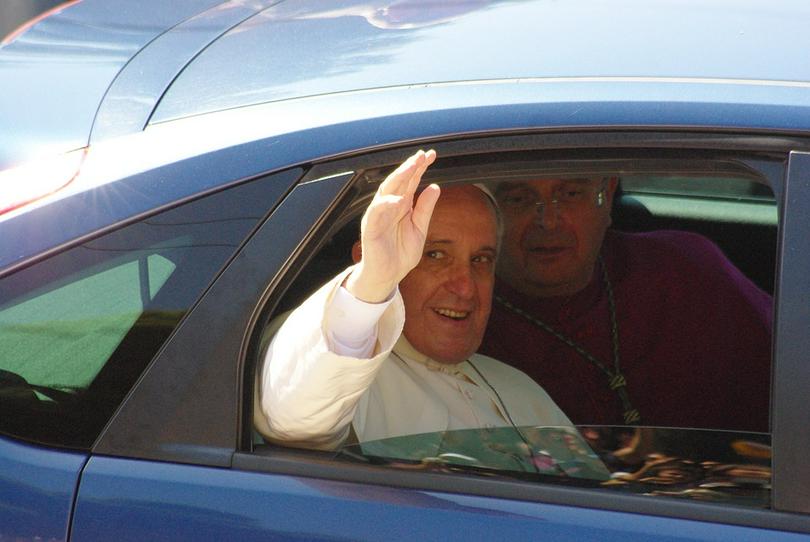Pope Francis denounced the "malevolent" internal resistance to the campaign to reform the Vatican Curia on Thursday for the third straight year.
In his annual Christmas greetings to the Curia, the Pope lectured the assembled cardinals, bishops and other department heads regarding the importance of change and stressed the necessity of lay men and women should be given top jobs if they have the qualifications needed for the job.
In his 2014 address, the pontiff had remarked that the Italian-led Curia suffered from "spiritual Alzheimer's" and listed 12 guidelines to reform which included coordination, dedication and openness to "the signs of the times."
He had spoken forcefully in his speech, acknowledging that the Curia is divided over the reforms: some - the self-centered members - remain resistant, some open, some hidden, and some hypocritical.
"But there has also been some malevolent resistance." the pope remarked to the Curia who gathered in the Sala Clementina. He adds, "This (type) germinates in distorted minds and presents itself when the devil inspires wicked intentions, often in lambs' clothing."
Last month, four conservative cardinals accused the Pope for creating confusion regarding the important moral issues which was touched in some of his teachings in a major document regarding the family and requested clarification on the issue. The Pope did not directly answer their inquiry, but had said some people displayed "a certain legalism" on the issue and misunderstood what is written.
In his address, the Pope said that the Curia should not be concerned with careers or promotions and instead, should focus on spiritual renewal, humility and a sober lifestyle
He remarks that the reforms would be continous and deep and the Curia should implement these reforms with "courage... firm decisions... (and) unconditional obedience." He also said it is not like "plastic surgery to remove wrinkles" and added "Dear brothers, it is not wrinkles that the Church should fear, but stains."
The Curia must also become multinational, multicultural and less clerical. He said "It would be opportune to foresee access (to Curia jobs) for a greater number of lay faithful, especially in those departments where they can be more competent than clerics..." and adds that the lay peopel should be "integrated in leadership roles."
He also said that the age-old bureaucratic practice of promoting someone to get them out of the way was a "cancer" that must end.
Since he was elected in 2013, Pope Francis has been keen on reforming the Curia due to the alleged corruption and leaks that has caused his predecessor, Benedict XVI, to resign.








